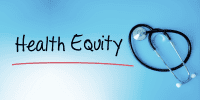Nursing, our dynamic profession, keeps evolving. New, exciting topics keep us on our toes. Environmental health is one such topic. Climate change, hospital waste, pollution, sustainable practices, renewable energy, recycling and healthier foods are now on nurses’ lists of interest and concern. In a way, this is nothing new. Nurses have always paid attention to how the environment affects our health. In the early days of the profession, fresh air and clean water were key components to regaining and maintaining optimal health. Temperate weather or a change of climate was often recommended for those with failing health or a chronic disease such as tuberculosis. These days, fresh air and clean water are difficult to find and global climate change is turning weather patterns and temperature averages haywire.
The ANA has a strong environmental commitment. We are a proud leader in forming public policy that affects human health and patient advocacy. This was exemplified by many of the resolutions passed at the 2008 ANA House of Delegates. Specifically, I was very pleased when the resolution on Global Climate Change and Human Health was resoundingly passed this June.
The ANA recognizes that global climate change will create challenges, making it essential that nurses advocate for individual—as well as policy level—changes. The ANA resolves to encourage its constituent member associations (CMA) to advocate for public policies that endorse sustainable energy sources and reduce greenhouse gas emissions. Furthermore, the ANA will support healthcare industry initiatives that reduce greenhouse gases.
Global climate change is an internationally recognized concern. The years 1995 through 2006 rank among the warmest globally since 1850 according to the Intergovernmental Panel on Climate Change; the earth’s global surface temperature has increased 0.74 degrees Celsius since the late 19th century according to the National Oceanic and Atmospheric Administration.
Climate change is exacerbated by greenhouse gases, many of these human-made. One greenhouse gas of much concern is carbon dioxide. By decreasing man-made greenhouse gas production, we hope to mitigate climate change and its possibly disastrous results for mankind.
Some still have doubts. They feel climate change is a natural (not man-made) occurrence or even that it does not exist. What is irrefutable, though, is that most of the practices and policies that will reduce greenhouse gases will also decrease air and water pollution and further decrease our dependence on imported oil. Being properly prepared for severe weather events will also enable our nation to adequately assist its citizens should another extreme weather disaster strike like Hurricane Katrina.
What effect could all of this have on nursing? As climate change progresses, scientists predict severe weather events that would lead to drownings, injuries, water- and food-borne illnesses, and posttraumatic stress disorder. Other sequelae could include droughts, floods, and homelessness. Increases in heat and rain could lead to an increase in vector-born illnesses and historically “tropical” diseases. Increased temperatures would also bring on heat-related illnesses, such as heat stroke and dehydration. High temperatures and increased air pollution would exacerbate chronic cardiac and lung diseases, including asthma. At-risk populations would include the very young, the elderly, those already in poor health, and the poor. Healthcare could be inundated with new and returning patients, with resources severely stretched. Nurses would be in the middle of it all, dealing with larger patient numbers, decreased resources, and illnesses not necessarily stressed in today’s nursing school curricula.
That’s why it is so important that we take action now. As nurses, we can work as a team within the healthcare community to decrease healthcare’s contribution to climate change; educate ourselves about global climate change and how we can, as a nation and as individuals, mitigate its effects and prepare for the inevitable ones; and work with the ANA to advocate for public policy that addresses climate change immediately and effectively.
Finally, I would urge you to form or join your CMA’s environmental health task force; it has been rewarding to see the interest in this issue as I travel. Be a motivating force to change our nation’s energy policies for the better. Educate yourself and your peers on new ways to reduce your environmental footprint at home and at work. Nursing must confront these serious issues now. Join the ANA in preparing for a healthy future.
Rebecca M. Patton, MSN, RN, CNOR
President
American Nurses Association

















